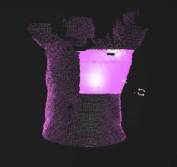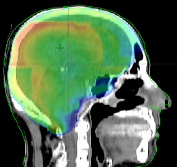
Consultation (in person or on video)
Dr. Prasad is available for a detailed consultation in person to discuss various treatment options. In case consultation in person is not feasible, video consultation can be organised for the convenience of the patient.

Second Opinion
Many patients experience confusion at the time of diagnosis of cancer or while planning the line of treatment. Dr. Prasad is available to provide an independent expert second opinion based on the latest scientific evidence, and guides patients to choose the best course of action.
Radiotherapy Treatment

Precision Radiotherapy
Advanced radiotherapy techniques such as IMRT (Intensity Modulated Radiotherapy), IGRT (Image Guided Radiotherapy), and Rapid Arc (VMAT – Volumetric Modulated Arc Therapy) have revolutionised radiotherapy by precisely focussing the dose of radiation on the tumour and sparing critical organs. Compared to older techniques, these advanced techniques have significantly lower side effects. Barring very few situations, precision radiotherapy is now the treatment of choice. Dr. Prasad will guide you to choose the best technique appropriate for the patient.

Surface Guided Radiotherapy
Dr. Prasad is the pioneer of SGRT in India and has gained vast experience in this cutting-edge technology. While receiving radiotherapy, the surface of the patient’s body moves continuously due to breathing and other reasons. This is a challenge in ensuring accurate delivery of radiation. SGRT helps to track the moving surface of the patient’s body, and interrupts treatment when the movement exceeds the set limits. SGRT has significantly improved the accuracy of radiotherapy delivery and is recommended in most patients.

Stereotactic Radiosurgery (SRS)
Radiosurgery is the most precise way of delivering a very high dose of radiation to a tumour with minimal side effects. The number of radiotherapy fractions are as low as 1 to 5 fractions, for most patients. SRS is most commonly used for tumours in the brain, spine, lungs, and liver. It is not surgery in the traditional sense, but is called so because it delivers ablative doses of radiation with surgical precision to eliminate tumours, without involving any surgery or anaesthesia. Dr. Prasad will advise you whether SRS is recommended and feasible for the patient.

Short Course Radiotherapy (SCRT)
Advances in technology now allow us to deliver radiotherapy in shorter durations than earlier, with minimal side effects. SCRT is most often used in breast cancers and prostate cancers, reducing the treatment duration from 7 weeks to 4 weeks or shorter. SCRT demands careful planning and execution to ensure the best results while keeping toxicities to a minimum. Dr. Prasad will advise you whether SCRT is recommended and feasible for the patient.

4D Radiotherapy (4DRT)
Tumours located in the chest or upper abdomen keep moving by up to 2 cm because of the patient’s breathing. This makes delivering accurate treatment very difficult and increases the side effects of the radiotherapy. With 4 D respiratory gated radiotherapy we track the tumour’s motion and deliver treatment with far higher precision. This significantly reduces the undesired dose received by critical organs such as the heart, lungs, and the spinal cord. It is most commonly used for breast cancer, lung cancer, pancreatic cancer etc.

Palliative Care
It is important to provide relief from symptoms that the patient may be facing because of cancer or because of the side effects of treatment. Common symptoms include pain, nausea or vomiting, anxiety or nervousness, depression or sadness, constipation, difficulty in breathing, tiredness etc. Dr. Prasad offers compassionate palliative care, where the focus is to minimise symptoms and improve the quality of life of the patient. Dr. Prasad can also advise you regarding home-based palliative care to improve patient care.


